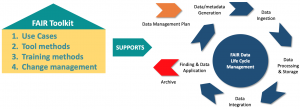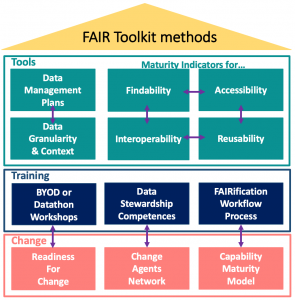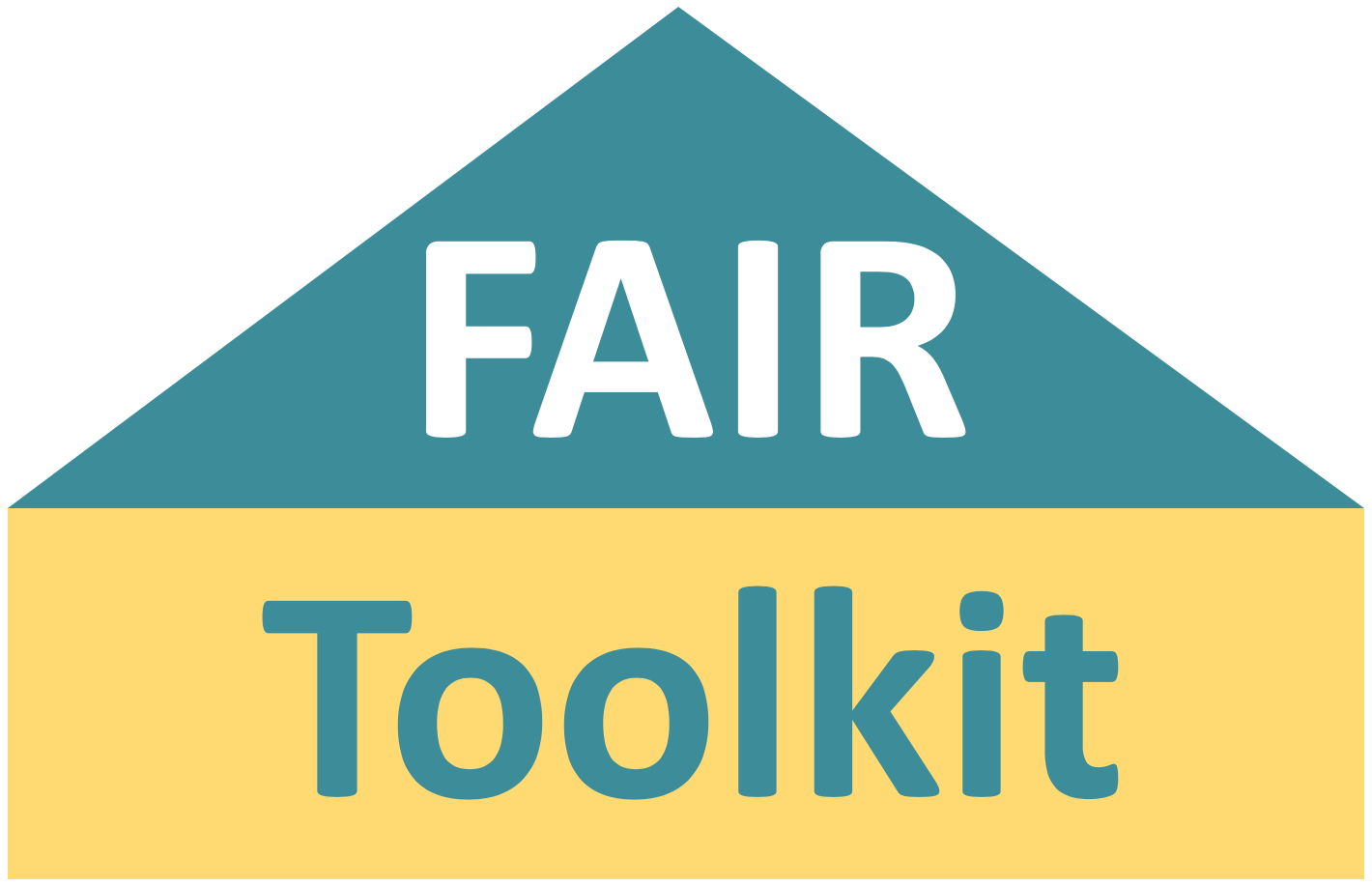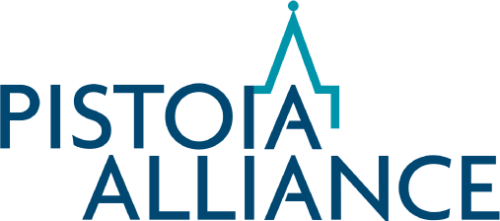Practical Support
The FAIR Toolkit is designed to provide support for management of the FAIR data life cycle as illustrated in Figure 1 below. It places emphasis on the practical aspects of FAIR data management through the leverage of existing resources that are most relevant to the needs of Life Science industry.

Figure 1: The FAIR Toolkit supports management of the FAIR data life cycle.
Use Cases
The FAIR Toolkit brings together a set of use cases from large enterprises in pharmaceuticals, agrifood, veterinary healthcare and smaller technology companies. These use cases show the benefits of FAIR data management as a key operational process to gain maximum value from data as a corporate digital asset.
Methods
The FAIR Toolkit also provides a set of Tools, Training and Change methods as shown in Figure 2 below.
- Methods for 1) Data Management Plans, 2) Data granularity and context, 3) BYOD datathon workshops and 4) Readiness for change can be used to prepare FAIR objectives for data management.
- Methods for 5) Data stewardship and 6) Change agents are complementary which can be considered together to support the generic 7) FAIRification workflow method.
- Initial FAIRness of data is determined with the Maturity Indicator methods for 8) Findability 9) Accessibility 10) Interoperability and 11) Reusability to understand what improvements in FAIRness can be made and aligned to the FAIR objectives as part of the 7) FAIRification workflow method.
- Finally, at the organisational level, FAIR data management can benefit from building a 12) Data Capability Maturity Model to understand the optimal level of FAIRness required to realise the full value of corporate data assets in a particular enterprise.
Figure 2: The FAIR Toolkit includes a set of Tools, Training and Change methods


